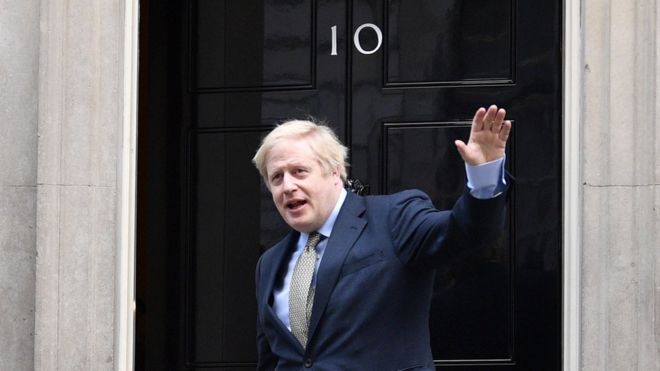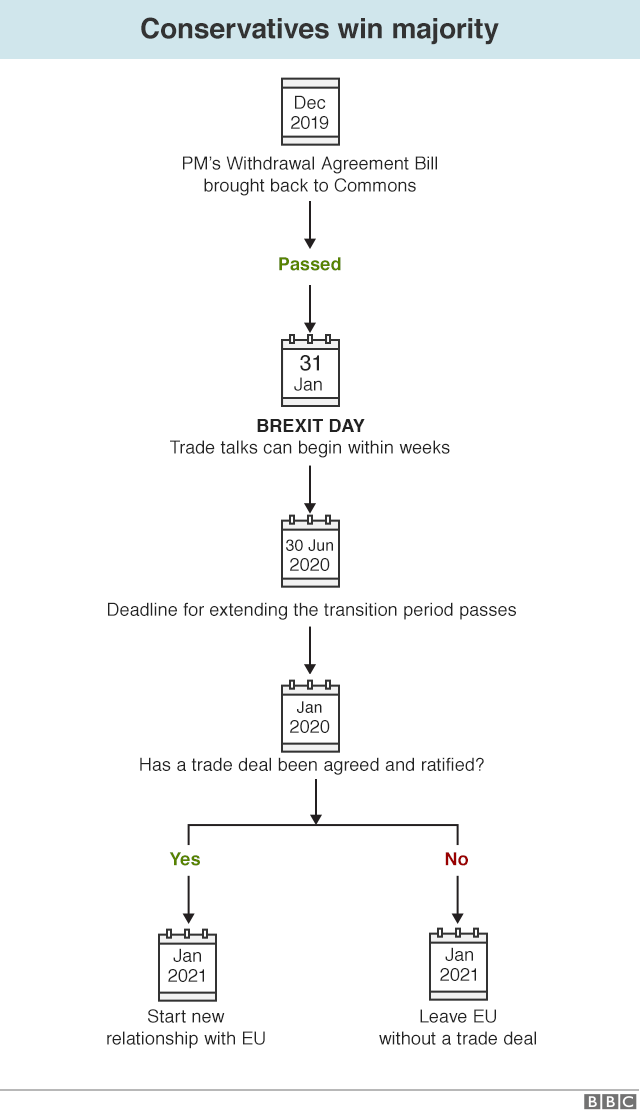
The Conservatives won a majority in the UK's general election. What could that result mean for Brexit?
The Brexit date - when the UK leaves the EU - is currently set for 31 January 2020. Prime Minister Boris Johnson agreed a deal with the EU, but it still needs to go through Parliament.
The default position - if no deal is passed - is that the UK would leave without one. However, that now seems unlikely.
Conservative majority - deal passed?

With a large Conservative majority in the House of Commons, it should be relatively straightforward to pass Mr Johnson's deal.
The government is bringing back the Withdrawal Agreement Bill - the piece of law that lays the framework for Brexit happening.
The aim is to get the bill completed in time for Brexit to happen on 31 January.

- SCROLL AND SEE: The results that sealed it
- MAPS AND CHARTS: The election in graphics
- WHO WON IN MY CONSTITUENCY? Check your result

What happens after Brexit?
Assuming the UK leaves the EU on 31 January, it will go into a transition period that is scheduled to end on 31 December 2020.
During this period the UK will effectively remain in the EU's customs union and single market - but will be outside the political institutions and there will be no British members of the European Parliament.
Future trade deal
The first priority will be to negotiate a trade deal with the EU. The UK wants as much access as possible for its goods and services to the EU.
But the government has made clear that the UK must leave the customs union and single market and end the overall jurisdiction of the European Court of Justice.
Time is short. The EU could take weeks to agree a formal negotiating mandate - all the remaining 27 member states and the European parliament have to be in agreement. That means formal talks might only begin in March.
The withdrawal agreement means the UK and the EU have to decide by the end of June whether or not to extend the transition period (by one or two years). But Mr Johnson has ruled out any form of extension, and the government is likely to change the law to stop that happening.
If no trade deal has been agreed and ratified by the end of the year, then the UK faces the prospect of tariffs on exports to the EU.
Mr Johnson has argued that as the UK is completely aligned to EU rules, the negotiation should be straightforward. But critics have pointed out that the UK wishes to have the freedom to diverge from EU rules so it can do deals with other countries - and that will make negotiations more difficult.
It's not just a trade deal that needs to be sorted out. The UK must agree how it is going to co-operate with the EU on security and law enforcement. The UK is set to leave the European Arrest Warrant scheme and will have to agree a replacement. It must also agree deals in a number of other areas where co-operation is needed.
https://www.bbc.com/news/uk-politics-46393399